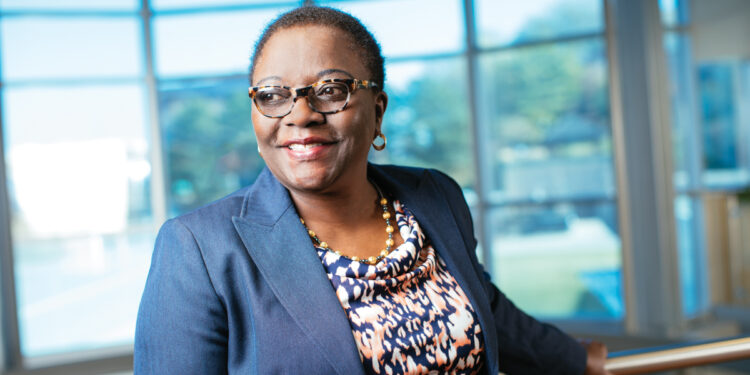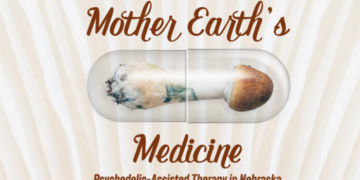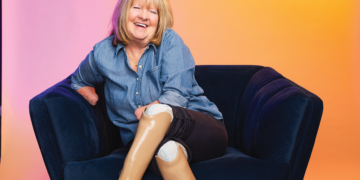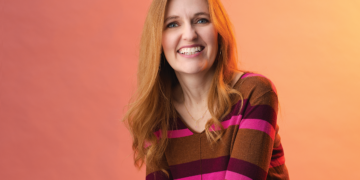The doctor had a front-row seat as the country plunged toward chaos.
COVID-19 quickly became a worldwide health emergency, bringing shutdowns, stay-at-home orders, and mask mandates to communities across the world. And while Omahans transitioned to working from home, the virus took hold in the neighborhoods Dr. Sade Kosoko-Lasaki, who leads Creighton University’s Department of Health Sciences’ Multicultural and Community Affairs, spent decades working to build bridges with.
Neighborhoods in east Omaha posted larger rates of transmission than anywhere else in the city. COVID-19 infections among Black and Hispanic Omahans soared.
“Looking at the pandemic and the effect on individuals who are not minorities, multiply that by five or six times for those that are minorities,” Kosoko-Lasaki said. “People are losing their jobs, people are scared, mental health issues are on the rise. And it’s continuing.”
With rising case numbers in Douglas County, the situation remains dire. But these issues are nothing new to Kosoko-Lasaki. From West Africa to Washington D.C. and now Omaha, Nebraska, she’s dedicated her life to fighting inequities. Now Kosoko-Lasaki, who also serves as the associate vice president for Health Sciences, and as a professor in the departments of Surgery and Preventive Medicine and Public Health at Creighton University, hopes the public will understand the message she and other people have preached.
“I think people will want to do more with this kind of work,” she said. “Because now they understand, I hope, the devastating effect of what happens when we all sit back and not do anything.”
Kosoko-Lasaki started her medical journey in 1978 when she received a doctorate of medicine from the University of Ibadan in Nigeria. From there she received degrees and training around the world, including stops in Ireland and Washington, D.C., where she held positions at Howard and Johns Hopkins universities. For many years, her focus was as an ophthalmologist in the public health sphere. She worked with international organizations such as UNICEF and the World Health Organization to raise awareness about the disproportionate effects of glaucoma in Black and Hispanic people.
When she came to Omaha in 2000, the challenges Kosoko-Lasaki encountered differed little from what she’d seen elsewhere.
“Racism is all over the country,” she said. “That’s the commonality. When you look at racism and discrimination, that’s the root of most of these problems. Is there anything unique about Omaha? No. It’s the same problem as every other city.”
Marginalized communities have plenty of reasons to distrust the health care system, due to instances such as the Tuskegee Syphilis Study, in which African Americans with syphilis were not told of a cure long after one had been found, and longstanding systemic exclusion.
Kosoko-Lasaki’s solution was to meet people on their own ground. The college started programs where public health officials would do presentations in Omaha’s public housing, hold annual festivals in areas such as North Omaha, or show people how to give themselves exams for breast cancer.
Through her programs, she’s helped educate people about conditions like asthma, diabetes, and high blood pressure while also talking about social determinants of health. What job a person has, what their family’s income is, and where they live has a huge impact on their access to health care.
Addressing that takes proactive initiatives.
Recently, Kosoko-Lasaki oversaw the implementation of a new program that trained ambassadors to act as a connection between public health and the community. These 60 people are leaders in churches, neighborhood organizations, or other community centers who receive training from the university. It’s all imperative to the mission of establishing a strong connection between health care and the people it’s historically shut out.
“When you do not trust a system,” Kosoko-Lasaki said, “you’re not going to see any good in what that system is trying to accomplish.”
What makes Kosoko-Lasaki stand out is her experience and patience, said Dr. Ronn Johnson, a professor of psychiatry and associate dean for Diversity and Inclusion. Johnson, who joined Creighton in April 2019, was working to lead a program that would build educational pipelines to put first-generation kids on paths to become health care workers. Kosoko-Lasaki’s handwriting is all over the finished product, he said.
“She is just stellar when it comes to talking about issues of diversity,” he said. “Because she’s lived it and she’s practiced it.”
She’s also a dogged advocate. In her time at the university, she’s raised $15.5 million in grants and awards. Recently she helped secure $250,000 to study COVID-19 health disparities in minority communities.
“I call her a five-star war general when it comes to diversity,” Johnson said.
But the work never stops for those working to promote health outcomes in communities historically held back due to systemic racism.
COVID-19, along with national calls to recognize racial inequality, has made that more apparent than ever. And while the persistence of these disparities frustrates many, Kosoko-Lasaki takes the broader, more optimistic view—that through all this turmoil, we can learn and improve.
“My hope is that all this will make us better people,” she said. “A better community. One that can help everyone globally to grow beyond ourselves.”
Visit creighton.edu more information.
This article was printed in the January/February 2021 edition of Omaha Magazine. To receive the magazine, click here to subscribe.













